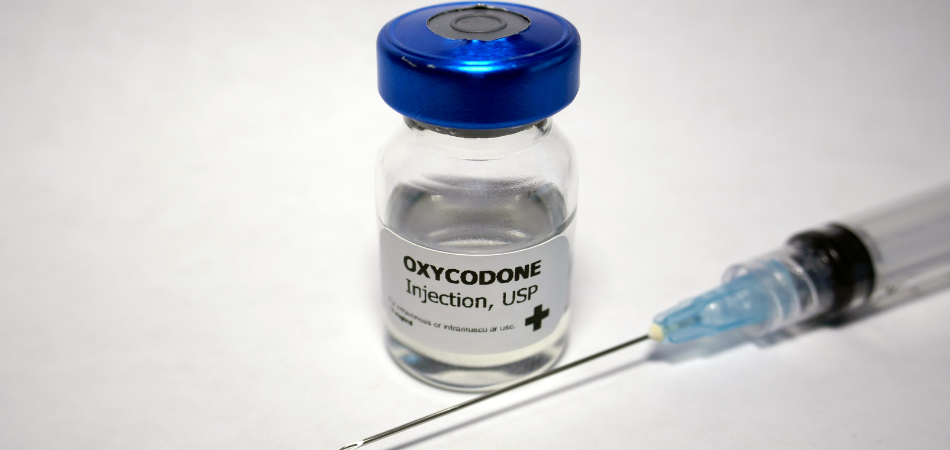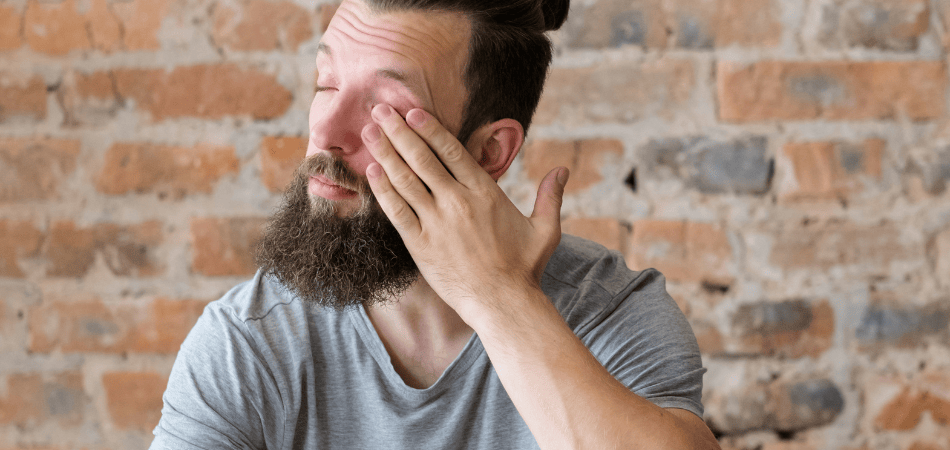
Written by:

Medically Reviewed by:
Last Updated:
February 17th, 2025
Oxycodone Addiction
What is oxycodone?
Oxycodone is a powerful opioid painkiller used to treat moderate to severe pain, often prescribed for conditions like cancer or after surgery. It works by blocking pain signals to the brain, providing relief when other painkillers aren’t effective.
In the UK, oxycodone is a controlled substance, classified as a Class A drug under the Misuse of Drugs Act 1971. This means it’s legal to use when prescribed by a doctor but illegal to possess or distribute without a prescription.
Due to its strength, oxycodone carries a high risk of addiction, so it’s closely monitored in medical settings.
Why is oxycodone addictive?
Oxycodone works by binding to receptors in the brain that control pain and emotion, flooding the brain with dopamine. While this helps to manage pain, it also creates a sense of euphoria that can become highly addictive.
Over time, the brain becomes dependent on Oxycodone to release dopamine, and the body builds up a tolerance, meaning more of the drug is needed to achieve the same effects. As a result, people may take higher doses or use the drug more frequently than prescribed, leading to addiction.
What makes Oxycodone particularly dangerous is that even those taking it for legitimate pain relief can unknowingly develop dependence, which can spiral into addiction. The cycle of needing more of the drug, combined with withdrawal symptoms when trying to stop, makes it difficult to quit without help.
How can an oxycodone addiction affect my life?
Oxycodone addiction isn’t simply about needing more of the drug to keep the habit going—it seeps into every corner of your life, often in ways you might not realise until things start to unravel. The effects go far beyond physical dependency, shaping your relationships, mental health and overall sense of well-being.
Physical health deterioration
One of the most immediate effects of oxycodone addiction is the toll it takes on your body. As your tolerance builds, so does the risk of overdose, which can be life-threatening. You might also experience a range of side effects, such as respiratory issues, chronic constipation and drowsiness. Over time, the drug weakens your immune system, leaving you vulnerable to illness and infections.
Emotional and mental health struggles
Oxycodone addiction doesn’t only affect your physical health—it can deeply impact your mental well-being as well. You may start to feel trapped in cycles of anxiety, depression or mood swings, especially during withdrawal periods. The drug can also cloud your judgement, leading to irrational thoughts or behaviours. Many people find themselves struggling with feelings of guilt, shame or hopelessness, which only feeds the addiction further.
Strain on relationships
Addiction often causes a breakdown in trust and communication with those closest to you. Loved ones may feel neglected or frustrated as they watch the addiction take priority over your relationship with them. Arguments, secrecy and emotional distance can become common, leaving relationships fractured. In extreme cases, relationships may break down completely.
Impact on work and finances
As oxycodone addiction takes hold, it becomes harder to focus or perform well at work. Absences, decreased productivity, and even job loss are common outcomes. Financial strain can also set in as more money is spent on feeding the addiction. The combined effect of losing income and spending on drugs often leads to debt or financial instability.
What are the signs of oxycodone addiction?
Recognising the signs of Oxycodone addiction is crucial, as it allows you to step in early and seek help for yourself or a loved one.
Addiction can develop over time, often without the person realising it and knowing the signs ensures that those affected can get the right support before the situation worsens.
If you spot any of these signs in a friend, family member or even yourself, it’s essential to reach out for professional help as soon as possible.
Physical signs
- Increased tolerance: Over time, a person may require larger doses of Oxycodone to feel the same effects. This can lead to escalating consumption, which is a major red flag.
- Withdrawal symptoms: If someone stops taking Oxycodone and experiences symptoms such as sweating, nausea, shaking or anxiety, it could indicate a physical dependency.
- Changes in sleep patterns: Insomnia or excessive drowsiness may be signs that the body is struggling to cope with Oxycodone use.
- Constricted pupils: Oxycodone can cause pupils to become smaller than normal, which is a noticeable physical sign of use.
Psychological signs
- Obsession with obtaining more Oxycodone: A person may become fixated on when and how they will get their next dose, neglecting other areas of their life.
- Mood swings: Extreme changes in mood, from irritability to euphoria, can be caused by the effects of the drug on the brain.
- Anxiety or depression: Oxycodone use can exacerbate mental health issues or create new ones, especially when the drug is not available.
Behavioural signs
- Doctor shopping: In countries where healthcare services are privatised, individuals addicted to Oxycodone may visit multiple doctors to obtain more prescriptions. This behaviour is a common sign of addiction.
- Neglecting responsibilities: Someone addicted to Oxycodone may start to neglect work, school or family obligations due to their focus on using the drug.
- Secrecy and lying: People may lie about how much Oxycodone they’re using or where they’re obtaining it, often becoming more secretive about their activities.
If you recognise any of these signs, reaching out for professional support is the best step you can take to begin the journey to recovery.
Can Liberty House help with an oxycodone addiction?
At Liberty House, we understand the challenges of Oxycodone addiction and the toll it can take on your life. Our dedicated treatment programme provides the support needed to break free from dependency in a safe and caring environment.
The journey begins with a comprehensive assessment to create a personalised detox plan, guided by our 24/7 medical staff, who monitor your progress and ease withdrawal symptoms.
From there, you’ll engage in therapies like DBT, group counselling, and holistic activities such as art and yoga, which are designed to help you heal both physically and mentally.
Our compassionate team is committed to supporting your recovery every step of the way, ensuring long-term success through tailored aftercare.
If you or a loved one are struggling with Oxycodone addiction, please don’t hesitate to reach out to Liberty House. Help is just a call away and we’re here to support you on the path to a healthier, addiction-free life.








